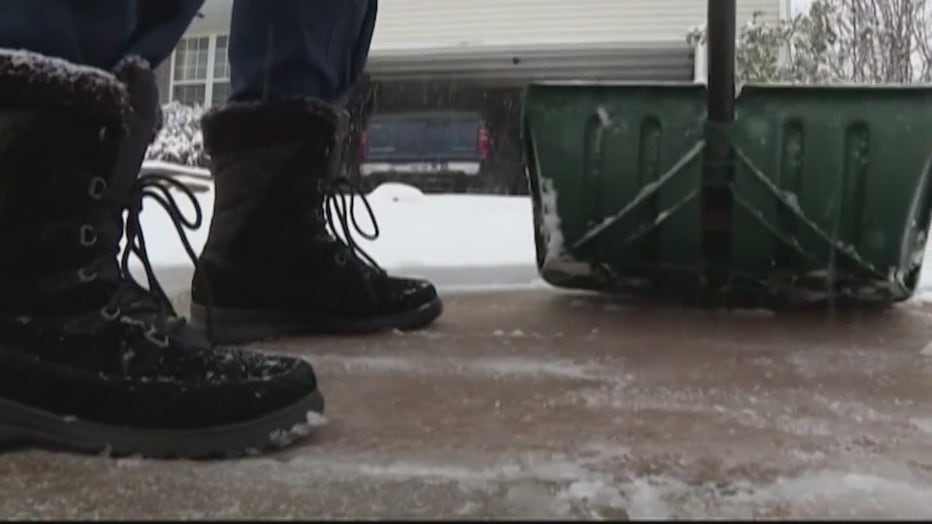When should you stop shoveling? Doctors say there's an age limit

Beaumont doc explains when you should stop shoveling your driveway
There's an age where it becomes not just a challenge to shovel - but it could lead to serious health problems. A Beaumont doctor says the right age to stop doing it yourself is 45.
SOUTHFIELD, Mich. (FOX 2) - Are you too old to shovel snow? Were you born in the 1970s? If so, you may be near the age that doctors recommend you stop shoveling snow as it could lead to health dangers, including a possible heart attack.
Beaumont cardiologist Dr. Barry Franklin says in the 1990s, he lost two close friends who died while shoveling snow. That sparked decades of researching this strenuous activity and the potential for harm. He found some startling results: You should not be shoveling snow if you're over the age of 45.
But Dr. Franklin says most people don't even realize how much stress shoveling wet, heavy snow in the wind and cold has on your heart, and it can have deadly consequences.
"You've got a perfect storm here. You're asking the heart to do a tremendous amount of work, and you're simultaneously increasing heart rate, blood pressure, and constricting the coronary arteries," Dr. Franklin said. "Every year we lose 1,000 to 1,500 individuals across the U.S. who died suddenly while shoveling heavy wet snow, and we want to try and prevent that in the future."
The Beaumont doctor says most adults have underlying heart problems and don't even know it.
RELATED: Shoveling snow is more dangerous if you've had COVID-19, says doctor
"Recent studies have shown that probably 85% of all U.S. Adults have underlying arteriosclerotic cardiac disease. That's a startling number, but it's true," Dr. Franklin says.
If you're over 45 and have any history of heart problems or symptoms - including chest discomfort with physical activity, you shouldn't be shoveling.
"Get a neighborhood teenager if you can to do the work for you or simply hire a plow," he said.
Another good option is to use a snow blower as those can also reduce the stress on your heart.
If you do have to clear the snow, be sure to push it - don't lift and throw it - and be sure to listen to your body.
"If you're out shoveling, and you feel pain and discomfort from the belly button on up - it could be in your back, neck, or jaw - that could be an indication your heart is not getting enough blood and oxygen," Dr. Franklin said.
The means if you need to stop and take a break, do it, and take your heart health seriously.


